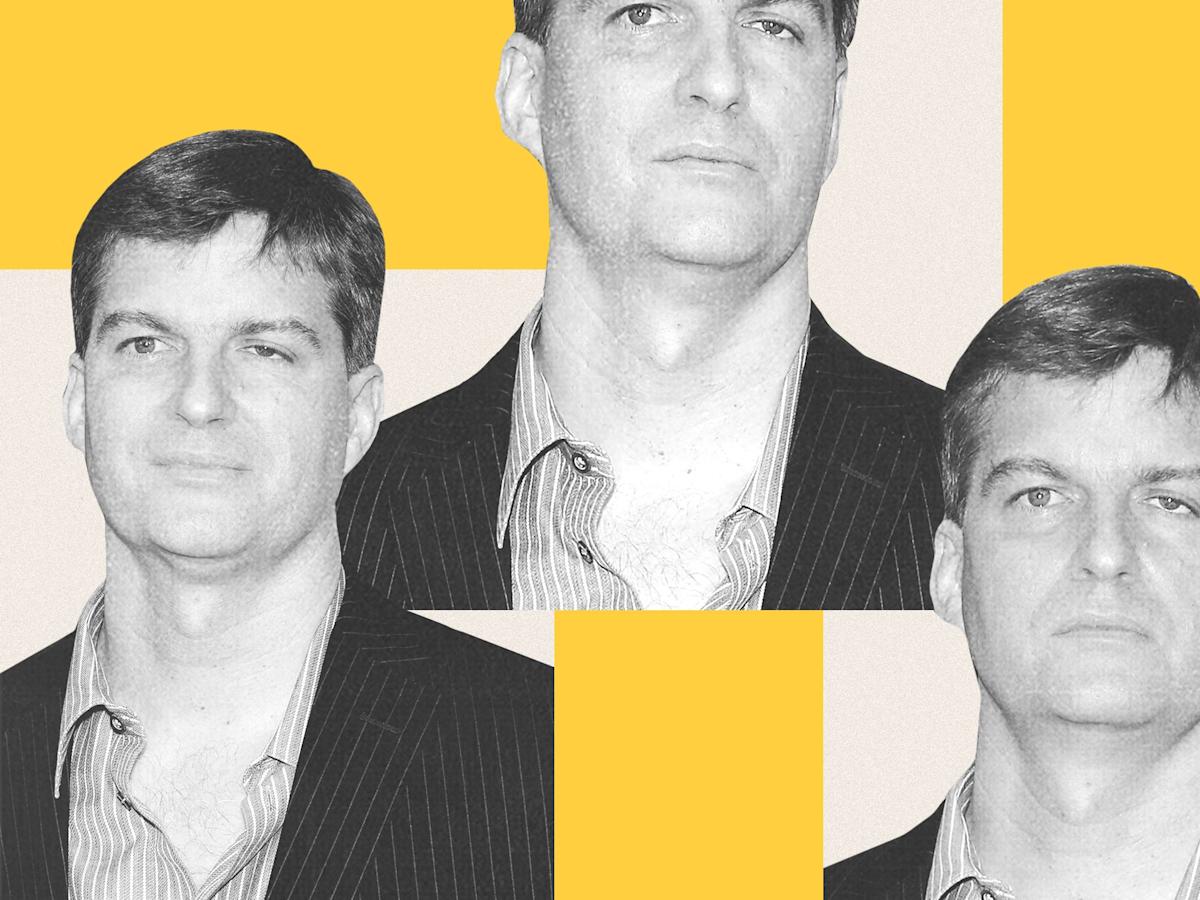-
Michael Burry might be the only short-seller beloved by the retail trader crowd.
-
Others like Andrew Left and Gabe Plotkin were reviled for betting against meme stocks.
-
But Burry gained fame by sticking it to the big banks in 2008, elevating him to hero status.
What gives Michael Burry his rizz?
Short-sellers have long been despised by the retail investing crowd, who have often taken bullish positions on the stocks short-sellers are betting will fall.
Inside Business stories reveal the inner workings of companies from Silicon Valley to Wall Street that are shaping our world today.
“The Big Short” investor, though, seems to be an exception.
The founder of Scion Asset Management skyrocketed to fame after successfully predicting the 2008 market crash. His ability to beat Wall Street banks at their own game is a source of inspiration for a lot of retail investors. It earned him enduring celebrity status, even after he stuck his neck out to bet against some of the market’s most popular stocks, like Palantir and Nvidia.
But, while other short-sellers — Andrew Left and Gabe Plotkin come to mind — have drawn online hate, Burry’s bets have seemingly never made him more popular. Global search interest in his name soared 769% to a new peak this month, according to data obtained from the Google Trends analytics tool Glimpse.
Burry deregistered his hedge fund this week, fueling excited speculation among retail investors about what the iconic market bear will do next.
“He’s speaking the language of the retail investor, which is to go against the prevailing wind in the market,” Michael Brown, senior researcher at Pepperstone, said.
A few things might explain why Burry gets a pass from a crowd that normally shuns short-sellers.
Burry made $700 million for his clients and took in around $100 million himself as the subprime mortgage crisis kicked off the Great Recession.
But it’s not just that Burry was right. It’s also that his now-legendary call that the housing market would unravel came at the expense of Wall Street.
The big banks are among the cast of villains in retail trader forums, and Burry’s David vs. Goliath backstory is also how many envision their fight against other short sellers who bet against their favorite meme stocks, like Andrew Left and Gabe Plotkin.
Plotkin’s hedge fund became the primary target of retail traders in 2021 as they pumped GameStop shares to record highs. His losses mounted to the billions in days, leading his firm to close its doors about a year later.
“I’m glad this piss bag is broke. I hope he’s not the only one either,” one user wrote in a thread about Plotkin on Reddit.
Burry’s online persona is also more offbeat compared to other investors. Since his return to X, the Scion founder has posted Star Wars memes and batted away rumors that he was 5’6″.
Speaking to Vanity Fair in 2010, Burry said he believes he sees the world differently, in part because he has one glass eye after a childhood cancer diagnosis. He has also spoken about being diagnosed with Asperger’s Syndrome.
In the post-crisis years, Burry’s mystique has grown, largely due to his sporadic appearances and disappearances on social media, where he drops breadcrumbs regarding his thinking that often run counter to prevailing market narratives.
This is important for retail investors, who often feel they have an inside story or theory about why a particular stock is misunderstood. Recent surges in Opendoor and Beyond Meat are examples of this phenomenon.
For the most part, Burry is calling more bubbles, and his prognostications have fueled theories and discussions on retail trader forums. However, it’s unclear if investors are necessarily following Burry’s advice. On r/Burryology, his stock calls are received with a mix of enthusiasm and trepidation.
“Maybe because his shorts are not working as expected?” one user wrote in a thread discussing a recent social media post Of Burry’s that said he believed the AI hyperscalers would eventually overstate their earnings by as much as 26%.
“Michael burry? Ah yes the guy who has predicted a market crash every year since the stock market began,” another user wrote on a separate r/investing thread.
There are likely a good number of retail investors who will continue to view Burry as a “godlike” figure, Brown said.
“But yeah, they’re probably not going to be in those positions for very long if past performance is anything to go by,” he added.
Burry, who has repeatedly warned of a stock crash in recent years, is now more closely aligned with the market zeitgeist as fears of a stock market bubble grow louder on Wall Street.
“People say I didn’t warn last time,” he wrote in a now-deleted post from 2021. “I did, but no one listened. So I warn this time. And still, no one listens. But I will have proof I warned.”
Burry also recently updated his profile name to “Cassandra Unchained,” an allusion to the Greek mythological figure who was cursed to make accurate prophecies but never to be believed.
“This all plays into existing concerns around the size of investment in AI, doubts over whether there will ever be a decent return, along with the circular nature of these investments. I’ve no doubt his retail followers take this very seriously,” David Morrison, a senior market analyst at Trade Nation, told Business Insider.
Read the original article on Business Insider



Leave a Comment
Your email address will not be published. Required fields are marked *